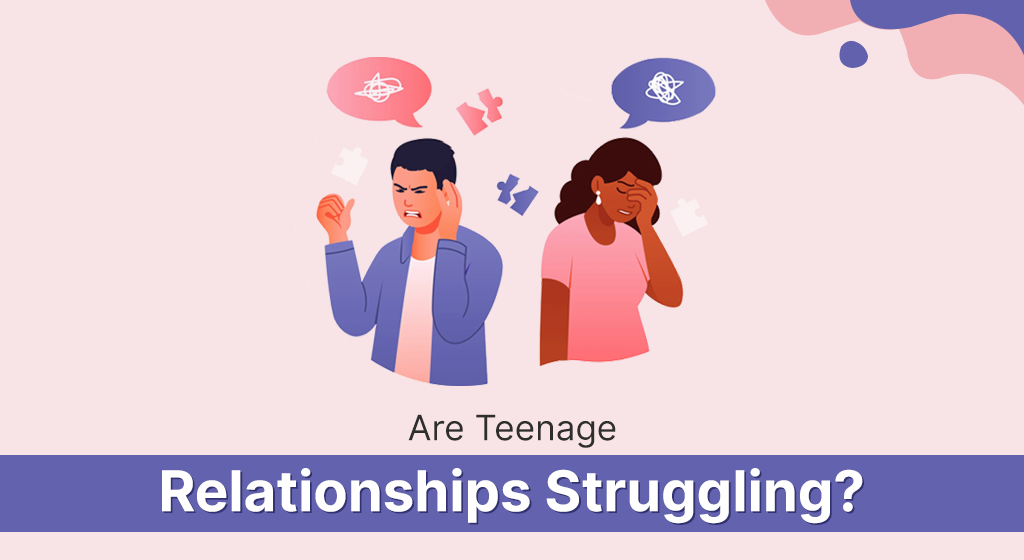April 24 , 2024

Navigating the world of teenage relationships can be both exciting and challenging. As adolescents transition from childhood to adulthood, they encounter a myriad of relationship issues that can be overwhelming. From communication breakdowns to peer pressure and emotional insecurities, these challenges can strain even the strongest of bonds. In this article, we will delve into some of the most common teenage relationship problems and offer insightful strategies to overcome them. Understanding these issues can help teenagers, parents, and guardians support each other through the ups and downs of young love.
1. Communication Breakdown:
One of the most common issues in teenage relationships is a lack of effective communication. Teens are still learning how to express their feelings, needs, and boundaries. Misunderstandings can easily arise when partners don't communicate openly and honestly.
Tips for Teens:
Tips for Parents:
2. Trust Issues:
Building and maintaining trust can be challenging for teenagers, especially when they're still learning to trust themselves and others. Trust issues can stem from past experiences, insecurities, or fear of betrayal.
Tips for Teens:
Tips for Parents:
3. Peer Pressure:
Teenagers often face pressure from their peers to conform to certain relationship norms or behaviours. This can lead to unhealthy relationships where partners feel pressured to act a certain way or make decisions, they're not comfortable with.
Tips for Teens:
Tips for Parents:
4. Jealousy and Possessiveness:
Jealousy and possessiveness can be destructive forces in teenage relationships. These feelings often stem from insecurity, fear of losing the partner, or past experiences.
Tips for Teens:
Tips for Parents:
5. Digital and Social Media Stress
Social media can create unrealistic relationship expectations and increase stress due to online arguments, constant comparisons, and privacy concerns.
Tips for Teens:
Tips for Parents:
6. Emotional and Physical Boundaries
Many teenagers struggle to set and respect boundaries in relationships, leading to discomfort and misunderstandings.
Tips for Teens:
Tips for Parents:
7. Family Disapproval
Parents and family members may disapprove of teenage relationships due to cultural, social, or personal reasons, which can create additional stress.
Tips for Teens:
Tips for Parents:
8. Breakups and Emotional Pain
Breakups can be emotionally devastating for teenagers, leading to feelings of sadness, anxiety, and even depression.
Tips for Teens:
Tips for Parents:
Consultation:
This article draws on insights from relationship experts, psychologists, and personal experiences to provide a comprehensive guide to common teenage relationship problems and practical solutions. It is essential to consult with professionals’ teenage mental health counselling near me and trusted individuals to tailor advice and support to individual needs and circumstances.
Conclusion:
Teenage relationships are an important part of growing up, but they also come with unique challenges. By fostering healthy communication, setting boundaries, and seeking support when needed, both teens and parents can navigate these challenges successfully. Whether it’s through teenage mental health counselling, online medical consultation, or simply having open conversations at home, there are plenty of ways to support teenage well-being.
If you or your teen is struggling with relationship issues, don’t hesitate to reach out to a best relationship counsellor near me or book doctor consultation online. Remember, help is always available!
Disclaimer:
The information on this blog is not a substitute for any professional medical diagnosis or treatment. The blog contains text, images or graphics are solely for informational purpose. Before implementing the information mentioned above, seek the advice of a professional doctor regarding any doubt or question you may have about the medical condition or treatment. Also, take the advice of a professional health care provider before making changes in your health care routine.
Our e-mail updates will keep you informed on our company, new products, stories from the millions of people we help live healthier longer lives.